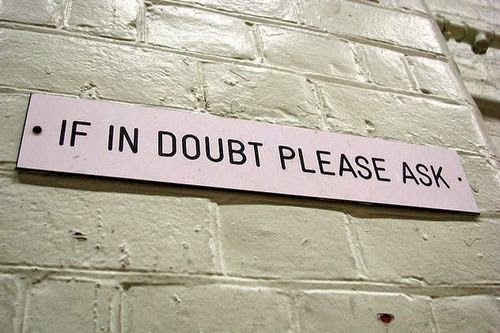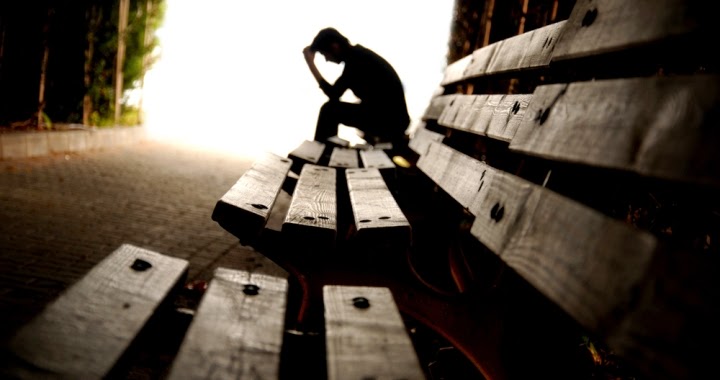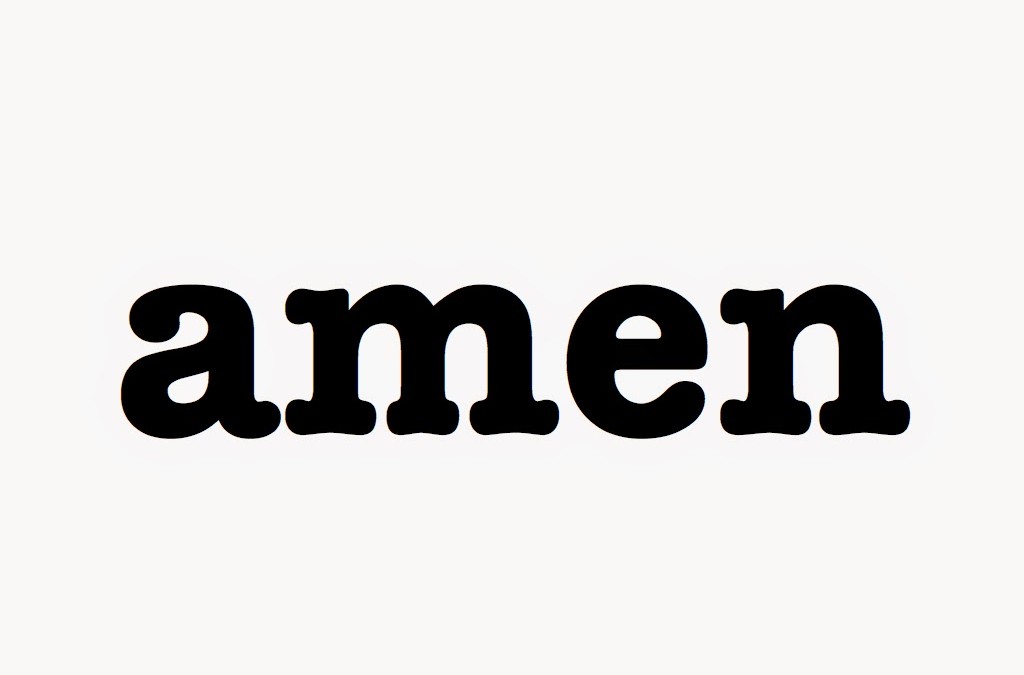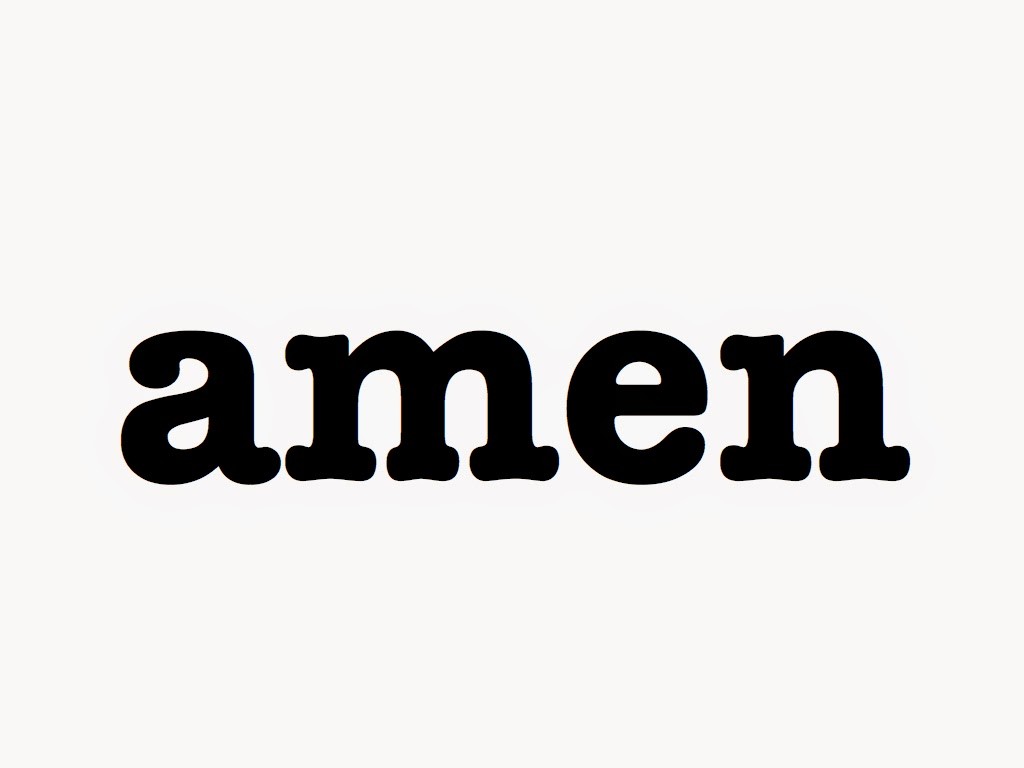by Jonathan Manafo | Mar 10, 2015 | Sunday Conversations
During the month of March (2015) we are going through a video teaching series from Bruxy Cavey of The Meeting House. Below you’ll find brief notes from each video. You can of course watch the full videos HERE.
Week #1:
The context in which Christians live (in the affected middle east areas) are similar to that of the New Testament. The difference of course was that the Roman Empire was the oppressor in the first century.
When answering the question, ‘what should we do about ISIS?’ We should clarify who the ‘WE’ is. If by ‘WE’ we mean the government, then we really we cannot answer that question. However, if by ‘WE’ we mean the church, then our response will always be in the form of another question, ‘How do we follow and live out the teachings of Jesus?’
ISIS is Islam as much as the KKK is Christian and Westborough Baptist is Baptist.
ISIS is claiming to be a radical form of Islam. Interestingly, when we move to a radical form of Christianity, it should and will like like a faith rooted in love, mercy and peace. (not violence)
Biblical Text for this talk – Luke 6.
– Jesus says…love your enemies…3 ways he teaches us to serve our enemies…
– serve them
– bless them
– pray for them
YOUTUBE link the wasn’t seen on Sunday’s video teaching
What can ‘WE’ do in response
– Pray
– Continually become saturated in the teachings of Jesus
– Talk with your Muslim friends
– Learn respectfully
– Offer to serve our Muslim neighbours who are in need
– Go to affected areas and serve
– Support Refugee (houses and ministries in the GTA)
– Pray more
– – – – – – – – – – – – – – – – – – – – – – – – – – – – – – – – – – – – –
Week #2 (coming next week)

by Jonathan Manafo | Mar 3, 2015 | Sunday Conversations
Have you ever had to give someone a ride in your car, but were not really ‘prepared’ to do so. You know what I mean – you spontaneously say, ‘I’ll give you a ride’ only to realize your car is a mess and now there’s no time to clean it. As they step into the front seat you are quick to apologize for the mess. Of course they graciously say, ‘don’t worry you should see my car’, unless your my neighbour of course, who said to me a while back, ‘Jon, maybe you should clean your car’, and I thought, ‘it is clean!’ We do the same when friends come to the front door. We so want to invite them in for a coffee or a drink, but know that as they walk in they may not see the most ‘spotless’ of kitchens or living rooms.
That’s how we feel about our deepest questions & doubts about God. We’re often afraid of what God would think if he saw the clutter in our minds about who he is, what the church is about and how we’re trying to keep our faith in order. This makes a little sense, but not really, when it comes to our dark past or shady baggage. We’re unsure if God is willing to walk into that mess. But if we never show him the real us, he can never show us the real him.
Some “religious” people make us feel like it’s shameful to have questions; that our thoughts about God need to be neat and tidy, that we’ve taken too long to figure out all the mysteries of God and faith and Jesus. But God isn’t like that. At least not the God I see in Scripture. Not only is God not afraid to walk into our clutter, he invites himself in. God wants to be in the middle of whatever dark season, thoughts or questions we may be having.
 Laura Winner, a Jewish girl who became a follower of Jesus, recently wrote a book about the walls she has been facing when it comes to her faith. Her first book was Girl Meets God. She also wrote a commentary on Matthew’s gospel. But her recent book is called, Still, and in it she tells us about how her faith didn’t seem to be fitting together as neatly as she would’ve liked. This comes from a deeply spiritual theologian who follows Jesus with all her heart. She writes…
Laura Winner, a Jewish girl who became a follower of Jesus, recently wrote a book about the walls she has been facing when it comes to her faith. Her first book was Girl Meets God. She also wrote a commentary on Matthew’s gospel. But her recent book is called, Still, and in it she tells us about how her faith didn’t seem to be fitting together as neatly as she would’ve liked. This comes from a deeply spiritual theologian who follows Jesus with all her heart. She writes…
Some days I am not sure if my faith is riddled with doubt or
whether, graciously, my doubt is riddled with faith.”
She also adds (as a balance), “…even in my doubt, the Christian story keeps explaining
who and where I am, better than any other story I know.”
Jude 22 says, “be merciful with those who doubt”
Many things can allow doubt to creep into our faith journey: sickness, trouble, let downs, hypocrisy, leadership issues, church issues, etc.
(check out this short video that reveals the fine line between certainty & doubt)
If and when this happens to us, we may feel like we’re about to get into a wrestling match with God. If so, we’re in good company.
In Genesis 32 we read about Jacob, a historical figure in Judaism and an important Biblical character, who is found getting on the ‘mat’ with God. The story is somewhat mysterious, but what comes from it is profound. As Jacob struggles with a man through out the night, he persists to the point where the man wants this match to end. Jacob says that he will not let go until the man (God) blesses him. Jacob is hurt in this match, his hip is injured (by a simple touch from this man). By the time it’s all said and done, Jacob receives his blessing and his name is changed from Jacob to Israel. The blessing came from the struggle. The man says, ‘because you struggled with God & man and have overcome.‘
…if we never show him the real us, he can never show us the real him…
There’s so much we can say about this story, but for this topic, we can rest assured of one thing, God is ok with our audacity to wrestle with him. In fact, if anything, it brings us closer to him. Jacob says that this struggle brought him ‘face to face’ with God. We can wrestle our selves towards a closer relationship with God. This means we can invite God right in the middle of our doubts and questions. Other Biblical characters did exactly that. Other than Jacob, great examples are: Job, Moses, Abraham, Habakuk, etc.
Two authors who encourage this are Greg Boyd and Philip Yancey.
Greg Boyd says, “our faith is grounded in authenticity that is unwilling
to sweep questions, doubts & complaints under the pious rug…it’s a faith that is
not afraid of going to the mat with God.”
In regards to questions & prayer, Philip Yancey says, “Prayer allows a space for me to bring my doubts &
complaints – in sum, my ignorance – and subject them to the binding light of a
reality I cannot comprehend but can haltingly learn to trust. Prayer is
personal, and my doubts take on a different cast as I get to know the person to
whom I bring them.”
In the New Testament, Paul writes these words to a young church that resonate with what we are saying…
“…continue to work out your salvation with fear and
trembling, for it is God who works in
you to will and to act in order to fulfill his good purpose.”
So let’s not feel like we can’t ask questions, like our doubt riddled mind or heart is something God doesn’t want to help clear up. Just like we’ve been talking about all series long, it’s in the middle our our dark seasons, of our struggles, of our most confusing times that our relationship with God grows. It’s in the middle of the tough times that we are stretched to become all that God calls us to be.
Our biggest doubts about
faith may lead to our deepest understanding about God.
– – – – – – – – – – – – – – – – – – – – – – – – – – – – – – – – – – – – – – – – – – –
smal(er) group questions:
What resonated with you the most during this recent series, The Middle?
(Family, Suffering, Anxiety, Doubt)
What side are you on – Do doubts push you far from God or do they eventually draw you closer? How do you feel about this statement, ‘There is life in the questions’?
(How do faith & doubt intersect?)
Laura Winner says that even in her deepest doubts, she chose to attach herself to the Christian Story, to Jesus. What is it about Jesus that even in our dark moments, he is a constant?
Take some time to talk about Jacob’s Wrestling Match in Genesis 32:22-32. You can read the whole text or simply touch on the parts you’d like to discuss.
Possible discussion:
– Jacob’s persistence to receive God’s blessing?
– What’s significant about Jacob’s name change?
– Israel’s identity as a nation who struggles to discover and live for God?
What do you make of Paul’s thoughts in Philippians “…continue to work out your salvation with fear and trembling”
Take some time to pray for one another…
(if you have time) What’s the difference between doubt and unbelief?

by Jonathan Manafo | Feb 18, 2015 | Sunday Conversations
In our North American culture we strive for such pretty lives, that when something goes wrong, when life isn’t perfect, we can’t seem to handle the outcomes. Even though we live in a day with the most advanced medicine and technology, we still wish for perfect, uninterrupted lives. Even medicine and the internet can’t stop suffering at our deepest human level.
It doesn’t matter who you are, we will in some way hit walls that hold us back. Gord Downie, from the Tragically Hip tells his story (via the Strombo show) about his wife being diagnosed with Cancer. Hearing this reminds us that even if you have a street named after you in a Canadian city, suffering and struggles are inevitable.
The biggest questions we have in life come from the unfortunate and unplanned circumstances in our lives. We wonder how we can get through difficult times or how we are to approach suffering? We also wonder where God is in the middle of if all.
I’m going to assume that in the middle of our struggles, whatever they are, we eventually ask 2 questions: WHY & WHERE?
We ask WHY did this happen to me? Did I bring it on or did it just happen? Did God give this pain to me or is he simply using it to teach me a lesson? Great question that most times can’t be answered fully. God even told Job, ‘you wouldn’t understand’.
The WHY question, as unanswerable as it seems, leads us to possibly a better question, that would be ‘WHAT?’. What can I learn from this mess in my life? What can I learn from the last 6 months of hell? Can this sickness teach me anything about me or life or purpose or faith? Who will I become after a divorce or a lost job.
The scriptures show us that we can embrace the tough things in life and actually let them teach us something. In Matthew 5, Jesus, on the side of hill, is teaching about faith and the kingdom of God. In his opening remarks he lists what have been called, The Beatitudes. Think about this, Jesus says ‘Blessed are…’ the poor, the hungry, the persecuted, etc. He says that those who suffer are blessed. How can that be? There’s no way that I can be ‘better’ because of my struggles?
Eugene Peterson says that “our faith is developed out of the most
difficult aspects of our existence, not the easiest.”
CSL says, “Hardships often prepare ordinary people for
extraordinary things”
Erwin McManus, “our struggles and suffering give us the context to tell
the greatest story of our lives.”
This resonates well with James 1:2-4 where we read…
Consider it pure joy, my brothers and sisters, whenever you face
trials of many kinds,3 because you know that the testing
of your faith produces perseverance. 4 Let
perseverance finish its work so that you may be mature and complete, not lacking
anything.
This verse is much easier to apply to other’s trials than to our own. We don’t want to consider our pain a joy, but the truth is that our trials and pain do teach us, they do test us, they do help us become the people God desires us to be.
When your trouble hits, and it will, before you simply begin asking for it to be removed, instead ask God to teach you something through it. It’s in the middle of our most difficult times that we are stretched into the best versions of ourselves. God may not remove the pain from you instantly, but he sure does give you what you need to walk through it. Walking might be the best metaphor for us to think about here. The scriptures show us that with God, we can walk through the fire, through the waters, through the storms – walking through is better than being pulled out because it’s in our ‘walking through’ that we become better followers of Jesus and consequently, better humans.
We also ask the WHERE question, and rightfully so. Where is God in all of this? Is he close or does he leave at the first sign of pain? The writers of the Psalms seemed to ask this question often – where are you God?
If there is one truth that makes all of faith make sense, it’s this, God is with us. This isn’t just a Christmas/Advent theme, it is the message of hope found in the gospels and the rest of scripture. God is in the middle of our struggle, whatever that struggle may be.
Hebrews 13:5-6 is a strong reminder of this. The writer is quoting Deuteronomy 31 & Psalm 18. Let these words ring true for you in your struggle…
“Never will I leave you; never will I forsake you.”
So we say with confidence, “The Lord is my helper; I will not be
afraid.
God assured us, “I’ll never let you down, never
walk off and leave you,” we can boldly quote,
God is there, ready to help;
I’m
fearless no matter what.
Who
or what can get to me?
Can there be beauty in the brokenness? Can there be hope
in suffering? Can there be gratitude in all circumstances? YES.
Instead of running away from our pain, we are made fully
aware that God is right beside us, in the middle of it, helping us walk through
it, with him, making us better, building us stronger, reassuring us of his
presence and his love. Even using us to encourage others through it all.
And remember this, as we move towards Easter, the cross of Jesus is the best example of God understanding and knowing our pain. He showed us love by embracing our pain, by taking on all our sin and struggles. We never walk through it alone.
– – – – – – – – – – – – – – – – – – – – – – – – – – – – – – – – –
small(er) group questions
How have you answered the WHY question during tough times?
What do you think about this CS Lewis quote,
“God whispers to us in our pleasures, speaks in our conscience, but shouts in our pains: it is his megaphone to rouse a deaf world.”
Take some time to talk about what James 1 says…
Consider it pure joy, my brothers and sisters, whenever you face trials of many kinds, because you know that the testing of your faith produces perseverance. Let perseverance finish its work so that you may be mature and complete, not lacking anything.
How important is God’s presence in all of this? Hebrews 13 says God will never leave or forsake us. Can you talk about how he’s been with you in the middle of your struggles?
Think about this verse as you close up your conversation…
“My grace is sufficient for you, for my power is made perfect in weakness.” Therefore I will boast all the more gladly about my weaknesses, so that Christ’s power may rest on me.

by Jonathan Manafo | Feb 10, 2015 | Sunday Conversations
This month at The Village we are serving up a series about some of the tougher, perhaps more sensitive issues of faith & life. The Middle is about how we can find God right in the middle of the things we deal with; those things that impact both our faith and our everyday lives.
For a bit of a pre-series summary check out this VIDEO.
Our first installment was this past Sunday as we interviewed two local family counsellors regarding issues that families deal with most. John Head works out of Brooklin & Coutice. He started and runs Head Family Counselling. Colleen Kennedy works in Pickering with Life Care Centres. Unfortunately our conversation was not recorded, however, we’ll do our best to address some of the things we talked about.
What are some of the obstacles families face today?
Both John & Colleen seemed to agree that many of our struggles come from our pace of life. We seem to go at mach speed and tend to miss the important moments in our lives that build relationships.
John compared living out west to living in Ontario, with the biggest difference being how much people work in Ontario and how little time people take to rest. John emphasized what 30 minutes of exercise a day can do for our minds and bodies. Both agreed that with a little effort to plan time for R&R, couples and families would see a huge difference in how they relate to one another.
The topic of social media, tablets and phones came up. We all know how beneficial these devices are to our work and home calendar, however, we also know that they take us away from physical communication. A suggestion was made, that for dedicated periods of time, we would all shut off our phones (i.e. dinner, an hour in the evening, early morning, etc.) and simply ‘BE’ together. I know that my family has set aside days at a time where we do this, and the relational vibe during those days are through the roof.
The need for Communication seemed to take up a large part of our interview. We are very aware of this buzz word when it comes to marriage, family, and relationships in general. The gist is this, ‘do what you can to keep the lines of communication open’.
Some suggestions were…
– In regards to your spouse, simply set-aside time, daily and weekly, to talk and and even catch up on what you may have missed the day before.
– In regards to children, figure out what makes your child tick, what they’re passionate about, and do what you can connect with them around that activity or passion. Knowing their personality is a key part of building deep relationship with them.
We talked about building into your family from the ground up – from the beginning of your family (or perhaps starting today), instilling things that build each other up. Set aside ‘family’ nights. Sounds old school, but it’s so important. Whatever the night looks like, a movie, games, a hike, swimming, a drive to your favourite little town, whatever, do it.
When we asked what broke John or Colleen’s heart the most in the conversations they’ve been involved in, they mentioned Abuse & Broken Marriages. I can’t speak to abusive situations, but of course, I am hurt when we hear about them. I can however speak to broken marriages.
Many of us know that Marriage has a success rate (or failure rate) of about 50%. However, John Head, quoting Steve Carrel of all people, said that 93% of marriages are ‘doable’, leaving room (7%) for some marriages that are just not going to work out. Marriage is hard. It’s not easy. It’s both beautiful & difficult. That said, with work and effort and intentionality, marriage is so worth it – the relationship between a man & woman is designed to be amazing. However, at the end of the day, it is still a relationship between two human beings who are emotional and inconsistent. That’s what also makes it awesome, that two people can come together and become one. (check out the event to your right)
The last thing we talked about was how we can keep God in the middle of our family, in the good and bad moments. Like all relationships, we need to invite him to be a part of it. God is not afraid of whatever you’re going through…he’s seen it all…and he cares more than anyone. He wants to help and he wants to love on you, no matter the situation. Perhaps Deuteronomy 6 can help. We see instruction to invite God into every part of our lives. Read it for yourself,
4 Hear, O Israel: The Lord our God, the Lord is one. 5 Love the Lord your God with all your heart and with all your soul and with all your strength. 6 These commandments that I give you today are to be on your hearts. 7 Impress them on your children. Talk about them when you sit at home and when you walk along the road, when you lie down and when you get up. 8 Tie them as symbols on your hands and bind them on your foreheads. 9 Write them on the door frames of your houses and on your gates.
At all costs, show your love for God, and your relationship with him, in every part, every room, every area of your family. The more places he is invited, the more he can do in us and through us.
– – – – – – – – – – – – – – – – – – – – – – – – – – – – – – – – – – – – – – – – – – – – – – –
small(er) group questions:
This week’s talk was a little different. What did you get out of the interview with John & Colleen? What were some things that stood out?
Where are you in your family journey? Starting, in the middle, empty nest, single? In light of your age and experience, what have you learned thus far…or feel you really need to learn moving forward?
Do you think families have it harder or easier today? How can the church help? What is the best way to encourage and inspire our friends and neighbours (and each other) to lead healthy marriages & families? How do you answer this as a single person?
What role does God have in all this? When you face family struggles, how can God help? Is it easy to push God away or are you even more desperate to invite him in? Any practical examples you can bring to this discussion? Something you may have gone through in your past?
Pray for families & marriages tonight. For relationships where people want to honour and love each other deeply. If you know of a family that’s going through a hard time, financially, physically, relationally, pray for them tonight, even if you can’t name who you’re praying for.
(put February 27 on your calendar…Married Life Live is a night we’re setting aside to encourage, cheer on, and inspire better relationships)

by Jonathan Manafo | Feb 3, 2015 | Sunday Conversations
We’ve been talking about 3 words that either lead us to pray or are used when we communicate with God in prayer. Just when we thought we were done, we thought there might be a little more to say about this. First, a recap…
We started with the word HELP. It’s the word that forces
us to start up a conversation with God. Why? Because we need HIM.
We moved on to prayer as gratefulness. Ultimately, we
are thankful to God for everything. He’s our provider, our Father, our saviour,
our…everything.
Lastly, we reminded ourselves of a God who WOW’s us, who blows our mind, who gets our attention…in Creation, in relationships, when we’re outdoors or at our kitchen table.
There is one more word that seems to get little attention. The word is AMEN. We kind of rush through the word quickly hoping to get to our next task or conversation.
Anne Lamott says something profound about this, “Amen is only as good as the
attitude in which it’s said. If you are trying to finish up quickly so you can
check your cell phone messages, you are missing the chance to spend quiet
moments with the giver of life.”
So before we close the book on prayer (for these posts) let’s see…was there something else to say?
One concern we may have about prayer is that it can become selfish. We ask God for help because we need help, we thank God because he’s been good, we’re wow’d by God for what he does.
If prayer is a conversation, then we need to leave some space for God to speak to us, to challenge us, to encourage, yes, but also to inspire us towards better things. This is especially true when we talk about the word HELP. When we pray for help in personal matters; things like finances or health or relationships, often we wait for God to act. However, when we pray for God to help others, for God to mend brokenness, for God to bring peace, could it be that he in turn invites us to partner with him in the answers to our prayer?
Shane Claibourn writes, “Prayer is important, but just as important is the call to become the answer to our prayers.”
In John 4 we read some profound words about receiving and giving ‘love’. As you read these words, insert the word ‘help’ where the word ‘love’ is and see what happens…“Since God loved (helped) us so much, we also ought to love (help) one another. No one has ever seen God, if we love (help) one another, God lives in us.”
When God helps us, we should be inclined to, compelled to, inspired to, help others. Just as we receive love and then share it, the same is true for help. Actually, one is very much connected to the other.
The same can be said for ‘thanks’. If we’ve arrived to a posture of gratefulness, in light of all that God does, our reaction or response to it should always be action. (Colossians 3:17)
Anne Lamott says, “Gratitude begins in our hearts and then dove tails into behaviour.
It almost always makes you willing to be of service.” “Saying & praying ‘thank you’ leads to
a crazy thought: what more can I do?”
In John 4, Jesus is in conversation with a Samaritan women. This is already a big deal, because Jewish men (1st century) don’t talk to Samaritan women in public. In this exchange about water, Jesus says that he can give this woman water that will quench all thirst…the deep thirst inside her soul. He also says that if we receive this water, it doesn’t just come into us, but it flows out of us. What we receive from God’s well is what we also give. One sip of Jesus’ living water, and one becomes almost
immediately a gushing fountain of living water for others. (Pete Scazzero)
As we talk about prayer, or even better, as we pray, be thoughtful and aware of what God might be telling you, not just what you’re asking of him. Don’t just pray for your self, pray for others, and as we do that, listen to what God might be saying to you about being the very help that you are asking for. How will our neighbourhoods, cities, world, see God’s love and help? By you and me partnering with God to make his love evident. Mark Buchanan says, “How does the world know
God’s name, nature, mercy, justice? They see it through you and me or not at
all.”
The 3 words remain the same: HELP, THANKS, WOW, but when
we say AMEN, let those words come alive in your life…so after we spend time
with Jesus, we can begin to look like him too!
– – – – – – – – – – – – – – – – – – – – – – –
small(er) group questions:
What compels or draws you to pray more? When things are going well or when things go bad? In other words, do you go to God more for help or to say thanks?
Prayer seems to be understood as a good thing to do if we want to develop a relationship with God and understand his ways. BUT…what is it about prayer that makes it hard to be consistent with it?
We said many times over the last few weeks that prayer is inviting God’s voice to be the loudest & clearest in our lives. What does that mean to you?
Jesus not only prayed, but he taught us to pray a certain way (Matthew 6). Quickly read the Lord’s Prayer in Matthew 6:9-13. What can you learn from Jesus’ instruction? Can you identify our January series words (Help, Thanks, Wow) in the prayer?
If we only ask God for help in personal matters, prayer can be seen as selfish. How has or how does God turn to us with an invitation to become some of the answers to our own prayers? Here’s something from 1 John 4 that might help, “Since God loved (helped) us so much, we also ought to love (help) one another. No one has ever seen God, if we love (help) one another, God lives in us.”
Tonight is a perfect night to pray for each other (as is every small group). As you share personal needs, make sure to add a need that reflects issues of injustice, evil and brokenness in our our world.
(think about coming back next week with some idea’s to bring your prayers to ‘life’)







